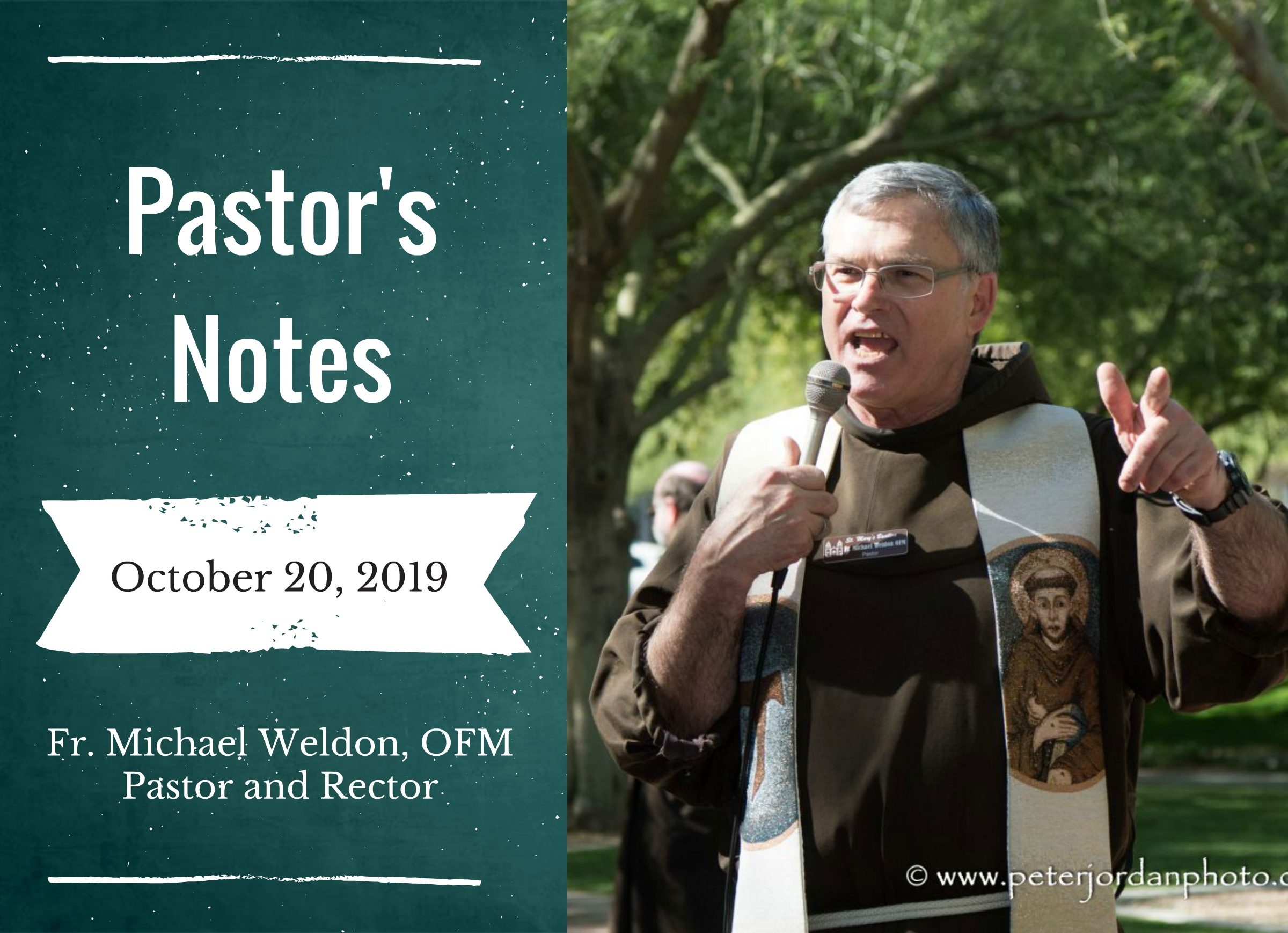St. Mary's Basilica
Phoenix, Arizona
Pastor’s Notes

“A Pain in the Neck.” That’s the traditional explanation given for the main character of this weekend’s Gospel story. We know people like her. The judge in Luke’s story is often interpreted with the role of the God-figure. God is, implicitly distant, the one who is slow to listen to the pleas of a poor and vulnerable widow — a lady without a husband, without status, without income, without security. According to the story, God only grants the woman her claims because she pesters him to the point that God loses his patience and reluctantly gives in. “Persistent” bothering (another word for” a pain…”) triumphs.
But there’s a problem with the picture this story paints. The judge, the God-figure, does not come across as someone we feel very close to. St Luke’s story tells us that he neither “feared God nor respected any human being.” Beyond that, the sense we get is that God is someone to bargain with or pester to the point of wearing him down. Prayer is bothering God. Really?
Fr. William Bausch, in Hungry, And You Fed Me, suggests another way to understand this story. He asks: “Why not see the widow as the image of God?” If she is the God-like figure, it becomes possible to arrive at a whole new meaning for this parable. From this perspective the message is still about the importance of persistence, but the persistent one is now presented as that person who — often against all odds — keeps resisting injustice, keeps renouncing discrimination, keeps opposing human bigotry in all its dimensions.
Our God-like widow, then, takes on the role of a Rosa Parks, a person who endured until justice was achieved. The original meaning of the Gospel passage is still maintained, only now it becomes the constant commitment to seek justice wherever it is being denied. This stance then insists we refuse to relent in our requirements to provide our children with adequate education and health care. It insists that all of us demand that our prisoners are treated with human respect, that our veterans are given appropriate health care, that our elderly are able to afford an adequate pension, that our planet is respected as a God-given gift.
Luke’s story is about persistently hungering and thirsting for justice, a good definition of prayer.
And ultimately the Christian answer to the painful reality of justice delayed and denied: namely, that God’s dream for a kingdom of justice and peace will eventually be accomplished. In the meantime, we are called to “pray always without becoming weary.” Keep hungering; keep thirsting against all odds.
Join us for our prayer for the Dead on All Souls Day, Nov.2nd. We will have a St. Mary’s ALL SOULS’ Mass on the Resurrection Altar at St. Francis Cemetery. Our Book of the Dead will be available for the November month for the names of all those we have lost in the past years, in the “Dia de los Muertos” celebration we will host a crowd of Phoenicians at our “altarcitos” with food, drink and dancing.
A gentle week,
Fr. Michael Weldon, OFM
Adapted from Celebration’s Ted Wolgamot’s 2016, “Keep Praying”
